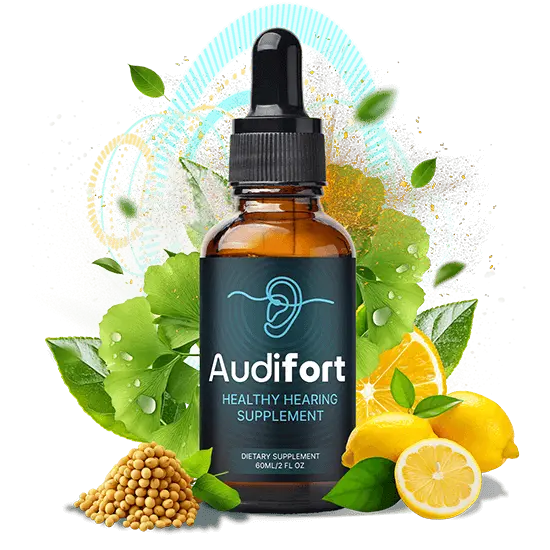A Closer Look at the Evidence
Quietum Plus is a dietary supplement that has gained attention with its promise to support healthy hearing and alleviate symptoms of tinnitus. In a market filled with hearing support formulas, it claims to offer a unique, natural solution. This review provides a rigorous analysis of its ingredients, scientific backing, and overall value to determine if it can deliver on its promises.
I wouldn’t recommend it.
Score: 4.2/10
Detailed Ingredient Analysis
The efficacy of any supplement lies in its formula. The Quietum Plus label contains a proprietary blend, which unfortunately obscures the exact dosage of most key ingredients. Let’s analyze the scientific evidence for each component listed.
The Core Blend
- Mucuna Pruriens:
- What is it? A tropical legume also known as velvet bean. It is a rich source of L-Dopa, a precursor to the neurotransmitter dopamine.
- What is its function according to science? Traditionally used in Ayurvedic medicine for nervous system disorders. Some research suggests dopamine may play a role in the auditory system, but studies directly linking Mucuna Pruriens to tinnitus or hearing improvement are lacking. One study on Parkinson’s disease noted its neuroprotective effects, but this is a far stretch from treating hearing issues (Source: PubMed).
- Is the dosage effective? The dosage is not specified in the proprietary blend, making it impossible to assess efficacy.
- Maca Root:
- What is it? A Peruvian plant traditionally used to enhance energy and libido.
- What is its function according to science? Maca is known as an adaptogen, helping the body cope with stress. While chronic stress can sometimes exacerbate tinnitus, there is no direct scientific evidence that Maca Root can treat tinnitus or improve hearing function (Source: Examine.com).
- Is the dosage effective? Dosage is unknown within the blend.
- Epimedium (Horny Goat Weed):
- What is it? An herb used in traditional Chinese medicine, primarily for sexual dysfunction.
- What is its function according to science? Its active compound, icariin, has shown some neuroprotective and blood flow-enhancing properties in animal studies. Theoretically, improved blood flow could benefit the inner ear, but there are no human trials to support its use for hearing health (Source: PubMed).
- Is the dosage effective? Dosage is unknown.
- Tribulus Terrestris:
- What is it? A plant used in traditional medicine for vitality and virility.
- What is its function according to science? It has been studied for its potential anti-inflammatory and antioxidant effects. As inflammation can be a factor in some types of ear damage, this is a theoretical benefit at best. There is no direct research connecting Tribulus Terrestris to hearing support.
- Is the dosage effective? Dosage is unknown.
- Other Herbal Ingredients (Dong Quai, Muira Puama, Ginger, Catuaba, Damiana, Ashwagandha, Piperine, Sarsaparilla, Asparagus):
- This group consists largely of adaptogens, anti-inflammatories, and traditional aphrodisiacs.
- Ashwagandha is a well-researched adaptogen that helps reduce stress and cortisol, which could theoretically lessen tinnitus perception for those whose symptoms are worsened by stress (Source: PubMed).
- Ginger is a potent anti-inflammatory.
- Piperine is included to enhance the bioavailability of other ingredients.
- However, like the primary ingredients, their direct connection to treating the root causes of hearing loss or tinnitus is not supported by robust clinical evidence.
Vitamins and Minerals
- Vitamins A & B-Complex: These vitamins are essential for overall health, including nerve function and maintenance. Deficiencies in B vitamins, especially B12, have been loosely associated with tinnitus in some studies, but supplementation is typically only effective if a deficiency exists (Source: PubMed).
- Zinc:
- What is it? An essential mineral crucial for immune function and nerve signaling.
- What is its function according to science? Some studies have investigated a link between zinc deficiency and tinnitus, particularly in the elderly. The results are mixed, but supplementation may help a subset of individuals who are deficient (Source: PubMed).
- Is the dosage effective? The label states 12.5mg, which is a reasonable daily dose, but may not be high enough for therapeutic effects in deficient individuals.
- L-Tyrosine & L-Arginine:
- What are they? Amino acids that are precursors to neurotransmitters and nitric oxide, respectively.
- What is their function according to science? L-Arginine can improve blood flow by increasing nitric oxide, which could theoretically benefit the cochlea. L-Tyrosine is involved in producing dopamine and norepinephrine, which play roles in neural communication. However, direct evidence for their efficacy in treating tinnitus is weak to non-existent.
Efficacy Analysis
Does Quietum Plus have the potential to deliver on its promises? Based on the ingredient profile, the potential is low.
The formula relies heavily on ingredients with indirect or purely theoretical benefits for hearing health. Many components are adaptogens or general wellness herbs that lack a clear mechanism of action for repairing auditory nerves or silencing tinnitus. The most promising ingredient is Zinc, but its effectiveness is largely confined to individuals with a documented deficiency.
The lack of dosage information for the proprietary blend is a major issue. Without knowing the quantities of key ingredients like Ashwagandha or Mucuna Pruriens, it’s impossible to confirm if they are present in clinically effective amounts. The synergy between the components is also speculative, with no research to support this specific combination for hearing health.
Safety and Side Effects
The ingredients in Quietum Plus are generally considered safe for healthy adults when taken at appropriate dosages. However, some potential side effects exist:
- Herbal ingredients like Tribulus Terrestris and Ashwagandha can cause mild gastrointestinal upset in some individuals.
- Mucuna Pruriens contains L-Dopa and should be used with caution by those on medications for Parkinson’s disease or with psychiatric conditions.
Who should NOT take this product?
- Pregnant or nursing women.
- Individuals under 18.
- Anyone taking prescription medication, especially for blood pressure, diabetes, or neurological disorders, should consult a healthcare professional before use.
- Those with known allergies to any of the listed ingredients.
Cost-Benefit Analysis & Value of Bonuses
Quietum Plus is priced at a premium level:
- 1 Bottle: $69 + Shipping
- 3 Bottles: $177 ($59 per bottle) + Free Shipping + 2 Bonuses
- 6 Bottles: $294 ($49 per bottle) + Free Shipping + 2 Bonuses
The price per dose is high, especially for a formula composed of widely available and relatively inexpensive ingredients. One could purchase several of the key components, like Zinc and Ashwagandha, separately at a significantly lower cost.
The two bonus e-books (“1-Minute Natural Tips to Hear Like a Pro” and “How to Get the Best Sleep of Your Life in Just 7 Days”) offer generic health advice that can easily be found for free online. They add very little tangible value to the overall package.
Manufacturer’s Reputation
This is a significant area of concern. The sales page and bottle do not clearly state the name of the manufacturer. The product is marketed under the “Quietum Plus” brand, but the company behind it lacks transparency.
- There is no readily available information about the manufacturing facilities.
- There are no third-party testing reports or Certificates of Analysis (CoA) to verify the purity and potency of the ingredients.
This lack of transparency makes it impossible to assess the quality control standards and trustworthiness of the brand.
I wouldn’t recommend it.
Score: 4.2/10
| Criterion | Score (1-10) | Weight | Weighted Score |
| Formula Efficacy | 3.0 | 35% | 1.05 |
| Safety and Purity | 5.0 | 25% | 1.25 |
| Cost-Benefit | 4.0 | 15% | 0.60 |
| Value of Bonuses | 3.0 | 15% | 0.45 |
| Brand Trust | 2.0 | 10% | 0.20 |
| NutralabReviews Final Score | 4.2 / 10 |
Recommendations
- Recommended for: Individuals who have already explored conventional tinnitus management options without success and wish to try a multi-ingredient herbal supplement, provided they have consulted with a healthcare professional and are aware of the weak evidence base.
- NOT Recommended for: Anyone seeking a scientifically proven treatment for hearing loss or tinnitus, individuals on a budget, or those who prioritize products from transparent manufacturers with third-party quality verification.
FAQ (Frequently Asked Questions)
1. How long does it take to see results with Quietum Plus? The official website suggests taking the supplement for at least 90-180 days for optimal results. However, given the formula’s composition, there is no guarantee of any specific outcome.
2. Does Quietum Plus cure tinnitus? No. There is currently no known cure for tinnitus. Quietum Plus is marketed as a dietary supplement to support hearing health, not as a treatment or cure. Be wary of any product claiming to cure this condition.
3. Is Quietum Plus safe to take? While its ingredients are generally safe for most healthy adults, the lack of third-party testing for contaminants and potency is a concern. It is essential to consult with your doctor before starting any new supplement.
4. What is the best way to take Quietum Plus? The recommendation is to take two capsules daily with a meal and a glass of water.



